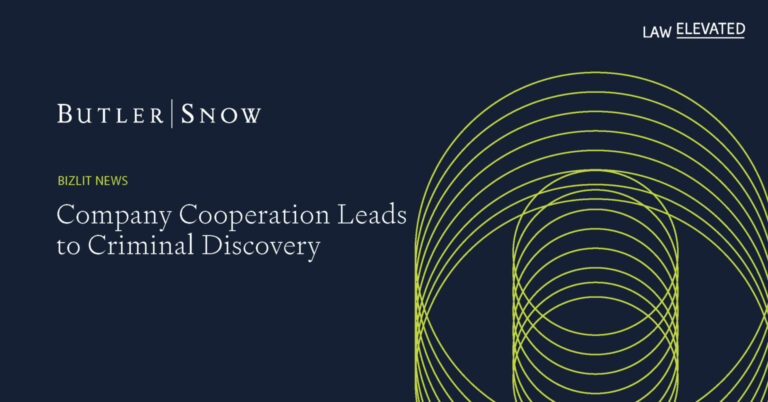When a company discovers that a crime may have been committed by individuals within the company, or is alerted by the government of that possibility, the company will often hire an outside law firm to conduct an internal investigation. If malfeasance is discovered, the company has a choice: it can disclose the results of the internal investigation and any malfeasance to the government, and cooperate fully, or it can decide not to do so. The Department of Justice (“DOJ”), in considering whether to charge a company, has continued to emphasize the importance of full cooperation, including the disclosure of information about all individuals involved in the alleged malfeasance.[1] The possibility of avoiding a corporate criminal charge is the key incentive when a company is contemplating disclosing the results of an internal investigation and giving full cooperation.
That said, disclosing the results of an internal investigation—particularly when the disclosure results in the prosecution of individuals within the company—can bring on other significant challenges. Chief among them is the waiver of the attorney-client and work product privileges.
On February 15, 2019, the U.S. Securities and Exchange Commission (“SEC”) announced that Cognizant Technology Solutions Corporation (“Cognizant”) agreed to pay $25 million in order to settle charges that it violated the Foreign Corrupt Practices Act (“FCPA”), and that two of the company’s former executives had been criminally charged.[2] Cognizant had hired an outside law firm to conduct an internal investigation. It decided to disclose the firm’s findings to the government. This cooperation presumably contributed to Cognizant avoiding a criminal charge. However, the former executives who were charged sought access to the information gathered during the company’s internal investigation.
On May 4, 2022, the federal court overseeing the criminal cases of the former executives unsealed its decision ordering Cognizant to provide the former executives with a substantial amount of the information obtained by its outside law firm in the course of the internal investigation.[3] The Court had previously found that Cognizant waived any privilege over the memorandum, notes, and summaries compiled by its attorneys because the company had shared detailed summaries of the interviews with the DOJ and the SEC.[4] The Court ruled that all underlying notes and documents relied on to report to the government were to be produced, regardless of whether Cognizant’s attorneys provided written reports of their findings to the government or just reported on them orally.[5]
Companies and their counsel should be aware that there may be no selective or partial waiver of the attorney-client and work product privileges when disclosing the findings of an internal investigation to the government. Typically, no one outside of the government knows what, if any, information was shared by the company, thus it is difficult for third parties to seek that information. Nevertheless, the former executives of Cognizant were aware that an internal investigation had been conducted and that at least some information was provided to the government. Whether the disclosure ordered by the Court will bolster defense arguments that these individuals were charged based solely upon the findings in the internal investigation, and in an effort to save the company, rather than being based upon the government’s own investigation, remains to be seen. The outcome of cases like this may have an impact on other companies’ future cooperation.
[1] U.S. Department of Justice, Office of the Deputy Attorney General, Memorandum re: Corporate Crime Advisory Group and Initial Revisions to Corporate Criminal Enforcement Policies, October 28, 2021.
[2] www.sec.gov/news/press-release/2019-12, SEC Charges Cognizant and Two Former Executives With FCPA Violations, Feb. 15, 2019.
[3] United States v. Coburn and Schwartz, No. 2:19-cr-00120, Order, April 27, 2022.
[4] Id. at Opinion, February 1, 2022.
[5] Id.
